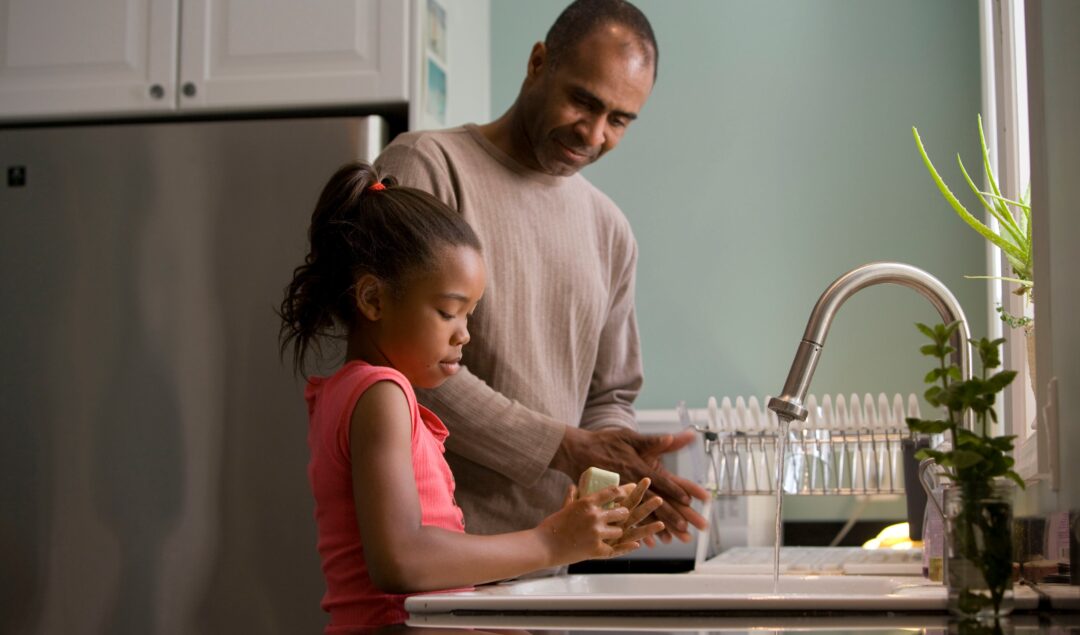The 93,000 Member Facebook Group Chat For Black Fathers: A Space For Vulnerability And Transparency

With over 93,000 members, the Black Fathers group has grown into one of the largest groups of dads on Facebook. It was launched by Matt Prestbury in 2008 after he grew increasingly frustrated with the notion that ‘Black fathers weren’t around.’
He knew there were involved Black fathers across the US and the globe – so he set up a group so they could all connect with one another using Facebook.
“When I got on Facebook, I figured that was the best opportunity for us to present positive images of black dads to the world so everybody can see who we truly are,” says Prestbury.
“We would be able to represent ourselves. I felt like we had an opportunity there where we could show out using our own words and our own images, and all of that good stuff. We don’t need people to tell other people who we are,” he told Fatherly.
His decision to launch the group came after he separated from his wife and was left alone with both their children.
The group chat was once an open chat where everyone, including non-Black fathers, could observe what was being discussed but five years ago Presbury decided to make the FB group private.
He says keeping it open soon became problematic because he couldn’t just keep telling people who weren’t Black fathers that they could observe but not say anything,
And there were many times when that philosophy would be questioned, and the fathers would get stuck in back-and-forth arguments.
Since it first launched almost 15 years ago – Prestbury says the group chat acts as a safe haven for some men as it allows them to open up about their struggles with fatherhood, mental health issues as well as get some general advice on navigating life with children.
This is particularly important because a study published in June last year by the Jama Network found an increase in suicidal ideation since 2009 was observed in female individuals but changes in male and Black adolescents represented the largest increase in the prevalence of suicide attempts between 1991 and 2019.
Asked how he tries to keep the environment positive while giving room for vulnerability, he said: “For the most part, there’s an understanding that we’re here to uplift each other. Like, the world beats us up enough. You go outside, and you get it out there. Sometimes you come in, and you get it from your spouse. So, you don’t need to come in here and get beat up. We really pushed that and created a whole culture where people truly buy-in.
“Today, we had a situation where some guy was just totally out of hand, and I said something to him. And you know, he just said, “Yeah, that’s my bad. I didn’t mean for it to go like that when I said it.” Even though he was really being a prick, just the fact that he owned his stuff and apologized and worked to make amends was significant,” he told Fatherly.



